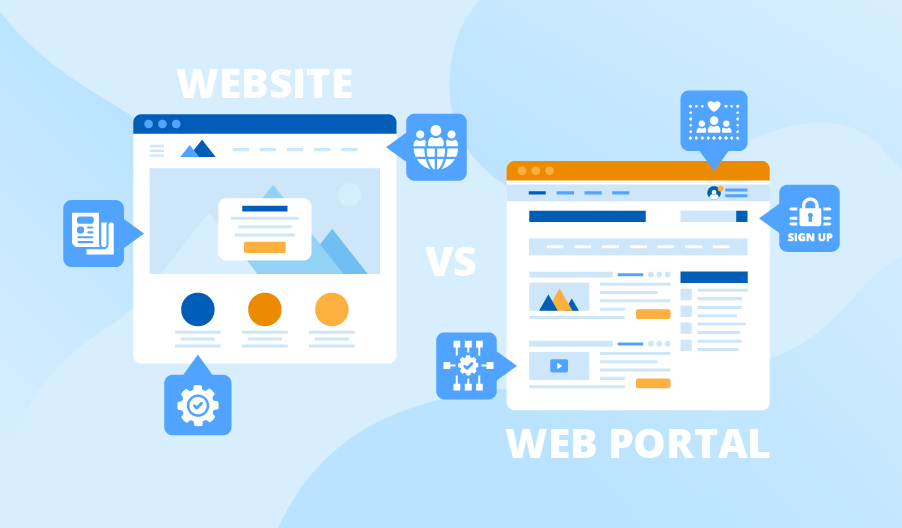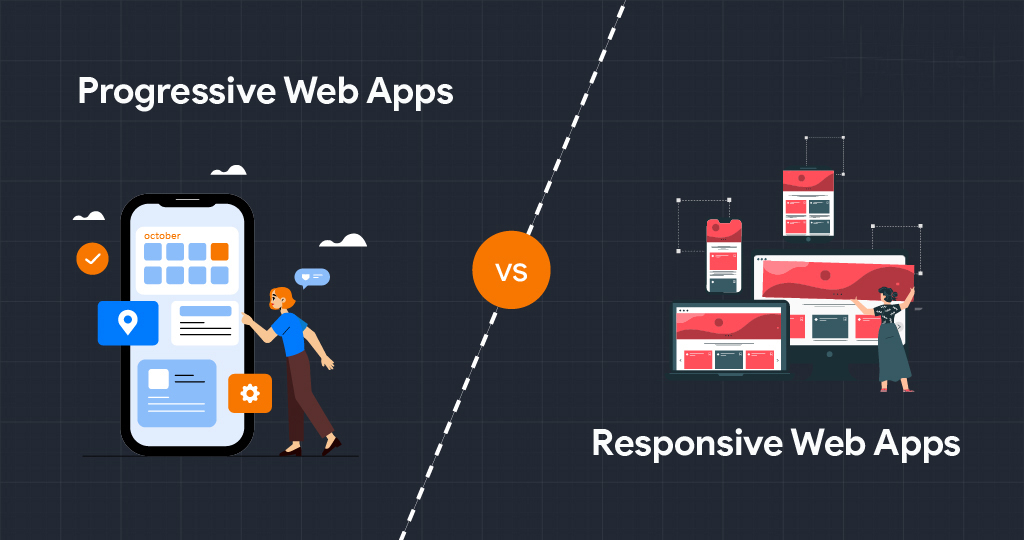.png)
30 Nov, 2022
Before establishing a business you want to ensure you are well-prepared, but you also understand that things will most likely go wrong. You must adjust to shifting circumstances to manage a successful firm.
Making a business strategy requires extensive market research on your industry and the characteristics of your target market. Running surveys, hosting focus groups, and looking into SEO and public statistics are all part of this.Prior to launching your product or service, you must establish your brand and amass a clientele that will be eager to patronize you the moment you open for business.This article is for company owners who wish to understand the fundamental procedures for launching a new enterprise. What about the less-noticed but equally crucial steps? It's evident that the company should have a name and a logo. The burden might quickly increase when deciding on your company's organizational structure or developing a thorough marketing plan.
Follow this 10 step checklist to take your business from an idea in your brain to an actual, functioning entity rather than wasting time circling in circles and attempting to figure out where to begin.
You most certainly already have a concept of what you want to offer online, or at the very least, the market you want to join, if you're thinking about launching a business.
Look up current businesses in the industry you've chosen.
Discover how you can improve what you're doing by studying what the current market leaders are doing.
If you believe your company can offer something that other businesses cannot (or can do the same thing faster and cheaper), or if you have a sound concept and are prepared to draught a business plan.
Glenn Gutek, CEO of Awake Consulting and Coaching, advised Business News Daily to "always start with why."
"It's important to understand why you're starting your business.
It may be prudent to distinguish between the business's service in a personal way and a market why throughout this procedure.
The scope of your business will always be greater than one that is created to address a personal need if your why is centered on filling a need in the market.
Opening a franchise of an established business is an additional choice.
All you need is a suitable site and the money to launch your firm; the concept, brand recognition, and business plan are all in place.
Whichever solution you select, it's critical to comprehend the justification for your notion.
Owner of Business by Dezign and former director of operations and women's company programs at Convention Center Stephanie Desaulniers advises business owners against creating a business plan or coming up with a name before determining the idea's viability.
Desaulniers claimed that individuals begin their businesses much too frequently without first taking the time to consider their target market and the reasons why people would want to hire or purchase from them.
You need to be more specific about why you want to work with these clients. Do you enjoy making people's life easier?
stated Desaulniers. Or delight in producing art to enliven their surroundings? Finding these solutions clarifies your objective. Thirdly, decide how you will offer this value to your clients and how to convey it so they will be eager to pay for it.
When your concept is ready, you must ask yourself a few crucial questions:
What is the goal of your company?
To whom are you marketing?
What are you trying to achieve?
How will you pay for the first costs?
A strong company strategy can provide answers to these queries.
New enterprises sometimes make blunders because they jump into things without carefully considering these business-related factors.
You must identify your ideal clientele.
Who will purchase your good or service?
What would the point be if you can't show that there is a market for your idea?
Making a business strategy involves extensive market research on your industry and the characteristics of your target market.
Focus groups, polls, and studies on SEO and open data are all part of this process.
You may better understand your industry, rivals, and your target client by conducting market research to learn more about their requirements, preferences, and behavior.
To better understand the potential and constraints in your industry, many small company experts advise obtaining demographic data and performing a competition study.
The most successful small businesses offer goods or services that set them apart from their competitors.
This has a big influence on your competitive environment and enables you to offer potential clients value that is distinctive.
As you put together your company plan, it's also a good idea to think about an exit strategy.
Making a rough plan for how you'll eventually leave the company pushes you to think forward.
According to Josh Tolley, CEO of both Shyft Capital and Kavana, "young entrepreneurs are too frequently so enthusiastic about their firm and so certain that everyone will be a customer that they spend very little if any, time to explain the plan on exiting the business."
"What do they show you initially when you get on an airplane?
How to escape from it.
What are the things they highlight before the film starts when you go to the movies?
locations of the exits.
They line up all the children during your first week of kindergarten and instruct them on fire drills to leave the building.
Business executives who don't have three or four prearranged exits are something I've seen much too often.
This has reduced the worth of the firm and even strained family ties.
A business plan enables you to determine the direction your firm is taking, how it will deal with any challenges that may arise, and what it will take to sustain it.
These free templates might be useful when you're prepared to write anything down.
Any business you start will cost money, so you must decide how you will pay for it.
Will you need to borrow money or do you have the resources to finance your startup?
Do you have the funds saved up to support yourself till you turn a profit if you decide to quit your current employment to focus on your business?
Find out what your initial expenses will be as soon as possible.
Because they run out of money before making a profit, many businesses fail.
It's never a bad idea to anticipate your beginning costs because it may take some time before the company starts to generate stable income.
A break-even analysis is one method you may use to figure out how much money you need.
This is a crucial component of financial planning that aids business owners in figuring out when their enterprise, good, or service will turn a profit.
Review the data: How many units of your products or services must you sell to turn a profit? How can I lower my overall fixed costs, you ask? How can I lower the unit variable costs? How can my sales increase?
Don't start a business by overspending. Recognize the kinds of investments that are sensible for your company, and stay away from overpaying on expensive new equipment that won't advance your company's objectives. Make sure you are on track by keeping an eye on your business spending.
Many startups have the propensity to spend money on pointless items. "We dealt with a firm that only had two workers but shelled out a significant sum for office space that could accommodate twenty people. Additionally, they rented a high-end professional printer that was better equipped for a crew of 100 and came with key cards to monitor who was printing what and when. Spend as little money as you can initially, and only on the items that are absolutely necessary for the company to develop and succeed. When you're established, you can afford the luxury.
Your business's start-up cash may come from a number of sources. The ideal technique to obtain finance for your company relies on a number of variables, including creditworthiness, the required sum, and the possibilities accessible.
Investors: Startups that require a sizable upfront investment may try to enlist an investor. Investors may contribute several million dollars or more to a startup firm in exchange for active involvement in managing the enterprise.
Raising funds.: As an alternative, you may start an equity crowdfunding campaign to get support from many people for lesser amounts of money. In recent years, crowdfunding has benefited many firms, and there are hundreds of trustworthy platforms available for all kinds of enterprises.
Select the ideal business bank:
Size is important when selecting a corporate bank. Smaller community banks are advised by Marcus Anwar, co-founder of OhMy Canada since they are aware of local market conditions and will work with you depending on your character and overall business profile.
They won't provide money to tiny firms without careful consideration, unlike major banks, according to Anwar. In addition, local banks want to get to know you personally so they can assist you if you experience difficulties and miss a payment. Smaller banks also have the advantage of having decisions made at the branch level, which can be quicker than at a higher level in larger banks.
Anwar advises considering the following factors while selecting a bank for your company:
What matters most to me?
Do I want to establish a close relationship with a bank that is eager to lend me support in any way?
Do I want to be seen by major banks as simply another bank account?
You must choose the type of entity your company is before you can register it. Your legal business structure has an impact on a variety of factors, including your tax filing strategy and your potential personal liabilities.
Partnership As opposed to this, a business partnership entails that two or more persons are individually accountable as the proprietors of the company. If you can locate a business partner with abilities that compliment your own, you don't have to do it alone. Adding someone to the mix typically makes sense if you want your firm to succeed.
Corporation: You might want to think about creating one of several different forms of companies (such as an S corporation, C corporation, or B corporation) if you wish to keep your personal liabilities distinct from that of your business. The legal structure of a corporation normally separates a company from its owners, and as a result, companies can own property, accept liabilities, pay taxes, engage in contracts, sue, and be sued just like any other person. However, various laws apply to different types of businesses. According to Deryck Jordan, managing attorney of Jordan Counsel, "Companies, especially C corporations, are especially ideal for young enterprises that anticipate on "coming public" or seeking money from venture capitalists in the near future."
Corporation with limited liability: The limited liability corporation is one of the most popular business forms for small enterprises (LLC). This hybrid organization combines the tax advantages of a partnership with the legal security of a corporation.
The choice of an entity type is ultimately up to you based on your present requirements and long-term business objectives. Understanding the many legal business formats that are available is crucial. It's a good idea to talk the matter over with a business or legal advisor if you're having trouble deciding.
Before you may legally run your firm, you must get a number of business permits. You must register your business, for instance, with the federal, state, and municipal governments. Before enrolling, you need to gather a number of papers.
You must register with the government in order to be recognized as a legal business entity. An "articles of incorporation" document, which is required for corporations, must include your company's name, mission, corporate structure, stock information, and other facts. Similar to this, certain LLCs must draught an operating agreement.
using a false identity (DBA)
You must register your business name, which can be your legal name, a fake DBA name (if you are the sole proprietor), or the name you have chosen for your firm if you don't have articles of incorporation or an operating agreement.
For further legal protection, you might also wish to take measures to trademark your company name.
You might need to submit an application for a DBA license if you're a partner in a general partnership or a sole owner using a fake name. It's better to get information on precise criteria and costs by calling or visiting your neighborhood county clerk's office. In most cases, there is a registration cost.
You might need to obtain an employment identification number from the IRS following the registration of your firm. Even while it is not necessary for sole proprietorships without workers, you could still wish to apply for one to keep your personal and company taxes apart or just to spare yourself the hassle if you decide to hire someone in the future. In order to evaluate if you need an EIN to operate your business, the IRS has published a checklist. You may register for a free EIN online if you do.
In order to complete your federal and state income tax requirements, you must also file specific paperwork. Your business structure determines the forms you require. To learn more about state-specific and municipal tax duties, visit the website of your state.The owner of NPL Consulting and licenced attorney Natalie Pierre-Louis stated, "You could be tempted to wing it with a PayPal account and social networking platform, but if you start with a strong foundation, your business will have fewer obstacles to worry about in the long run."
Some firms can additionally need licenses and permissions from the federal, state, or municipal governments to function. The municipal hall in your area is the ideal location to get a company license. Then, you may look up licensing requirements by state and business type using the SBA's database.In several trades, businesses and independent contractors are obliged to have professional licenses. A commercial driver's license is an illustration of a professional business license (CDL). Buses, tank trucks, and tractor-trailers are just a few of the vehicles that someone with a CDL is permitted to drive. Three classes—Class A, Class B, and Class C—are used to categorize CDLs.
You should also inquire with your city and state to see whether a seller's permit is required so that your company may legally charge and collect sales tax from clients. Resell permission, permit licence, reseller permit, resale ID, state tax ID number, reseller number, reseller licence permit, or certificate of authority are some of the several names for a seller's permit.
It's crucial to remember that each state has its own standards and names. Through the state government website of the state or states you are conducting business in, you may apply for a seller's permit.
The correct insurance for your business should be purchased before you formally begin, even if it may escape your mind as something you'll "get around to" someday. It can be expensive to deal with situations like property damage, theft, or even a consumer lawsuit, so you need to be sure you're adequately insured. There are a few fundamental insurance plans that the majority of small firms may take advantage of, even though you should think about a variety of business insurance options. For instance, if your company plans to hire staff, you will at the very least need to get workers' compensation and unemployment insurance.
Depending on your region and sector, you could also require additional forms of coverage, although the majority of small companies are advised to have general liability (GL) insurance, commonly known as a company owner's policy. Property damage, bodily harm, and personal injury to you or a third party are all covered by GL.
You might also wish to take professional liability insurance into consideration if your company offers services. It protects you if you act improperly or fail to take a necessary action while running your firm.
You will need to find and hire a fantastic team to launch your business, unless you want to be its sole employee. Entrepreneurs must give the "people" component of their firms the same consideration they give to their goods, according to Joe Zawadzki, CEO and creator of MediaMath.
Zawadzki added, "Your product is developed by people. Finding your founding team, figuring out any gaps, and deciding how and when to fill them should be your top priorities.
Equally crucial is figuring out how the team will function as a whole. You'll save a lot of problems later on if you define roles and responsibilities, the division of labour, how to provide feedback, and how to collaborate when everyone is not in the same room.
You and your team probably won't be able to handle running a firm entirely on your own because it might be really challenging. Third-party companies can help with that. Businesses in every sector, from human resources to business phone systems, exist to work with you and assist you in managing your company more effectively.
When looking for B2B partners, you must make a thoughtful decision. Finding someone you can trust is essential since these businesses will have access to crucial and perhaps sensitive company information. Our professional sources advise asking prospective vendors about their experience in your sector, their track record with current clients, and what type of development they have assisted previous clients in achieving in our guide to picking business partners.
Although not every business will require the same kind of suppliers, practically all businesses will require some standard goods and services. Take into account the following operations, which are essential for any kind of business.
Receiving payments from customers: By providing a variety of payment methods, you may make a sale in whichever format is most convenient for your target market. To make sure you're getting the greatest cost for your sort of business, you'll need to evaluate choices and choose the correct credit card processing service.
Financial management: Many business owners are capable of handling their own accounting tasks when they first start out, but as your company expands, you'll be able to save time by hiring an accountant or comparing accounting software suppliers.
You must first establish your brand and amass a fan base of customers who will be eager to support you once you open your doors for business, whether they be actual or symbolic.
Additionally, keep these digital assets current with fascinating, pertinent material about your company and sector. Too many entrepreneurs have an incorrect attitude towards their websites, according to Ruthann Bowen, chief marketing officer of EastCamp Creative.
They regard their website as an expense, not an investment, which is the problem, according to Bowen. "That's a serious error in the current digital era. Small company entrepreneurs that recognize how important having a solid internet presence is will start out stronger. Building a clientele by consistently spreading the word about your business requires developing a marketing strategy that extends beyond your debut. This procedure is just as crucial, especially in the beginning, as offering a high-quality good or service.
Your duty as an entrepreneur doesn't end with your debut and initial sales. You must constantly expand your company if you want to turn a profit and stay afloat. You'll need to put in some time and work, but your business will reward you for your efforts.
An excellent strategy to attain growth is to partner with more well-known businesses in your sector. Make contact with other businesses and request some advertising in return for a free sample of a product or service. Join forces with a charitable organization and donate some of your time or goods to raise awareness of your brand.
There's never a flawless strategy, even though these suggestions can help you establish your firm and make it ready to thrive. Despite your best efforts, something will almost surely go wrong while beginning a firm. You must adjust to shifting circumstances to manage a successful firm.
























All right reserved by Itgenix Softech Solutions